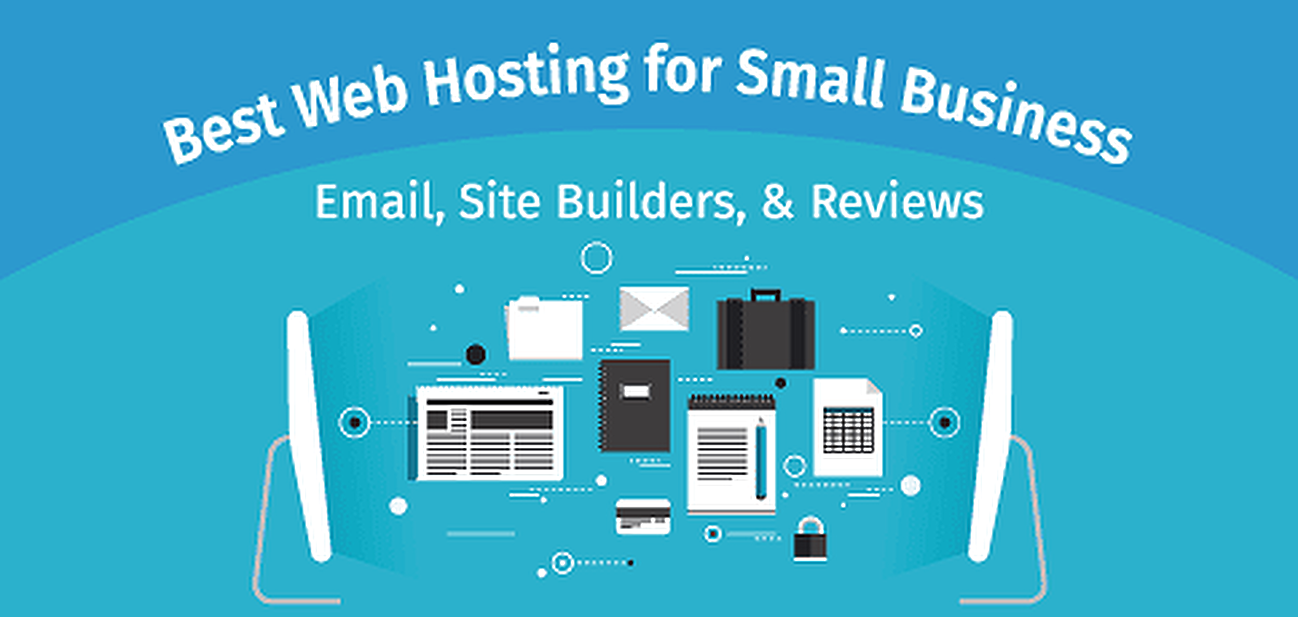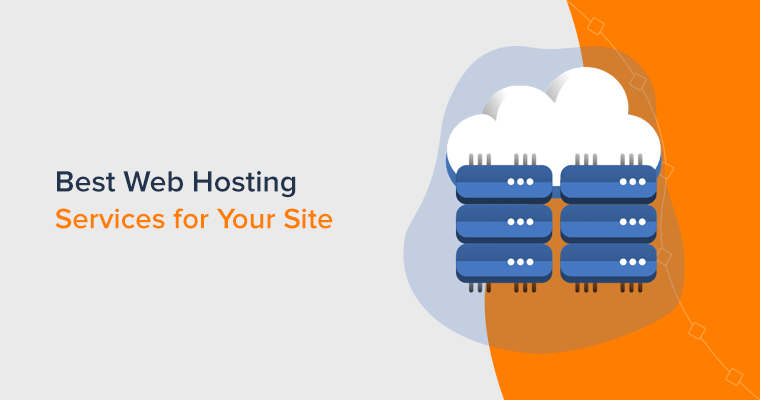Finding the best web hosting for small businesses is crucial. A reliable host impacts your site’s performance and success.
Small businesses need strong web hosting to thrive online. It affects site speed, security, and customer experience. With many options available, choosing the right one can be overwhelming. Each hosting provider offers different features and pricing plans. Understanding your needs is key to making an informed choice.

This guide will help you navigate the world of web hosting. We’ll explore what makes a good host and what features to look for. By the end, you’ll know which web hosting service best suits your small business needs. Let’s dive in and find the perfect match for your online presence.
Types Of Web Hosting
Choosing the right web hosting can be difficult. Especially for small businesses. Understanding the different types of web hosting helps in making an informed decision.
Shared Hosting
Shared hosting is the most affordable option. Here, multiple websites share the same server resources. This option is great for small businesses with low traffic. Benefits include:
- Low cost
- Easy to set up
- Basic features
But shared resources can lead to slower website speed during peak times. This might affect user experience.
Vps Hosting
VPS hosting offers more control and resources. It stands for Virtual Private Server. You still share a server, but each site has its own resources. Key advantages:
- More control
- Better performance
- Scalable resources
This option suits growing small businesses that need more resources.
Dedicated Hosting
Dedicated hosting provides a server solely for your website. This means maximum control and resources. Major benefits include:
- Full control
- High performance
- Enhanced security
But it is also the most expensive option. It’s ideal for high-traffic websites that need top performance.
Cloud Hosting
Cloud hosting uses multiple servers to host websites. This ensures flexibility and reliability. Benefits of cloud hosting:
- Scalability
- High uptime
- Cost-effective
Cloud hosting is perfect for small businesses that expect variable traffic. It offers a balance between cost and performance.

Credit: codeconfig.dev
Shared Hosting For Small Businesses
Shared hosting is a popular choice for small businesses. It offers a cost-effective solution for those just starting. In shared hosting, multiple websites share one server. This reduces costs and makes it affordable. But is it right for your business? Let’s explore the pros and cons.
Pros
Shared hosting is budget-friendly. It provides an easy setup process. No technical skills are needed. Many providers offer 24/7 support. This ensures help is always available. Shared hosting includes basic features like email accounts and databases. These are often enough for small businesses. Regular backups and security updates are usually part of the package.
Cons
Shared hosting has some limitations. Server resources are shared with other websites. This can lead to slower website performance. High traffic on other sites can affect your site. There is also less control over server settings. Advanced customization options are limited. Security can be a concern. If one site on the server is compromised, others might be at risk.
Best Providers
Several providers stand out for shared hosting. Bluehost is known for its reliability and support. Their plans start at a low cost. HostGator offers easy scalability options. This is useful as your business grows. SiteGround provides excellent performance and security features. Their customer service is top-rated. These providers are good choices for small businesses.
Vps Hosting For Growing Businesses
As small businesses grow, their web hosting needs evolve. VPS hosting offers a perfect balance between shared hosting and dedicated servers. This hosting type provides more resources and flexibility without the high costs of dedicated hosting. For growing businesses, VPS hosting ensures stability, scalability, and better performance.
Pros
- Scalability: Easily upgrade your resources as your business grows.
- Performance: Enjoy better speed and reliability compared to shared hosting.
- Customization: Full control over server settings and configurations.
- Security: Improved security features to protect your data.
- Cost-Effective: More affordable than dedicated hosting.
Cons
- Complexity: Requires more technical knowledge than shared hosting.
- Cost: More expensive than shared hosting plans.
- Management: May need additional time and effort for server management.
Best Providers
| Provider | Features | Price |
|---|---|---|
| Bluehost | 24/7 support, Free domain for one year, Unlimited bandwidth | Starting at $18.99/month |
| HostGator | Scalable resources, Full root access, Weekly backups | Starting at $19.95/month |
| InMotion | High availability, Free SSL, cPanel and WHM included | Starting at $17.99/month |
Dedicated Hosting For High-traffic Sites
Small businesses with high-traffic websites need powerful hosting solutions. Dedicated hosting offers a robust option. It provides exclusive server resources. This ensures your site runs smoothly even during traffic spikes.
Pros
- Performance: Dedicated resources lead to faster load times.
- Security: Enhanced security features keep data safe.
- Customization: Full control over server configurations.
- Uptime: Higher uptime guarantees, crucial for high-traffic sites.
Cons
- Cost: Higher price compared to shared hosting.
- Management: Requires technical expertise to manage.
- Scalability: May need physical upgrades for more resources.
Best Providers
| Provider | Key Features | Starting Price |
|---|---|---|
| Bluehost | 24/7 support, free domain, SSD storage | $79.99/mo |
| InMotion | Managed hosting, free backups, cPanel | $139.99/mo |
| HostGator | Unmetered bandwidth, DDoS protection, 24/7 support | $89.98/mo |
Cloud Hosting For Flexibility
Cloud hosting offers a scalable and flexible solution for small businesses. It allows you to pay for what you use, making it a cost-effective choice. As your business grows, you can easily upgrade resources without downtime. Let’s explore the pros, cons, and best providers for cloud hosting.
Pros
- Scalability: Easily adjust resources to meet your needs.
- Cost-Efficiency: Pay only for what you use.
- Performance: Fast load times with reliable uptime.
- Flexibility: Adaptable to various business models.
- Security: Enhanced security features protect your data.
Cons
- Complexity: May require technical knowledge to manage.
- Cost Variability: Costs can fluctuate based on usage.
- Reliance on Internet: Requires a stable internet connection.
Best Providers
| Provider | Features | Pricing |
|---|---|---|
| Amazon Web Services (AWS) | Scalable, Secure, Wide Range of Services | Pay-As-You-Go |
| Google Cloud Platform (GCP) | AI and Machine Learning Integration, Global Network | Flexible Pricing |
| Microsoft Azure | Hybrid Cloud, Advanced Analytics, AI | Pay-As-You-Go |
| DigitalOcean | Simple, Developer-Friendly, SSD-Based Servers | Starts at $5/month |

Credit: www.hostingadvice.com
Key Features To Look For
Choosing the best web hosting for small businesses is crucial. It ensures your website is reliable and secure. But what key features should you look for? Let’s break them down.
Uptime Guarantee
Uptime is the time your website is online and accessible. A good web host offers at least a 99.9% uptime guarantee. This ensures your site is almost always available to visitors. Downtime can lead to lost customers and revenue.
Customer Support
Quality customer support is vital. Look for hosts that offer 24/7 support via phone, chat, or email. Quick and helpful support can save you from prolonged issues. This is especially important if you are not tech-savvy.
Scalability
Your business will grow. So should your hosting plan. Choose a host that offers scalable options. This means you can easily upgrade your plan. Ensure it matches your business growth without a hitch.
Security Features
Security is non-negotiable. Look for features like SSL certificates, regular backups, and malware protection. These features keep your website safe. They protect customer data and build trust. A secure website is a successful website.
Cost Considerations
Choosing the right web hosting for small businesses requires understanding cost considerations. Small businesses often have limited budgets. Therefore, finding an affordable yet reliable hosting solution is crucial.
Budget Constraints
Small businesses need to manage expenses carefully. Web hosting costs can vary widely. Some hosts offer plans as low as a few dollars a month. Others might charge more, depending on the features included. It’s essential to choose a plan that fits your budget without compromising on quality.
Consider the renewal rates as well. Some hosts offer low initial prices, which increase significantly on renewal. Read the terms carefully to avoid any surprises. Look for plans that offer a balance of affordability and necessary features.
Value For Money
Getting the most value for your money is important. Some hosting providers include extra features in their basic plans. These might include free domain registration, SSL certificates, or email accounts. Evaluate what is included in the cost to determine the best value.
Uptime guarantees and customer support are also critical. A slightly higher cost might be worth it for better support and reliability. Consider the long-term benefits of choosing a host with excellent service. Quality hosting can save money by preventing downtime and issues.

Credit: www.sitesaga.com
Frequently Asked Questions
What Features Should Small Businesses Look For In Web Hosting?
Small businesses should look for reliability, scalability, and good customer support. Affordable pricing and user-friendly control panels are also essential.
Is Shared Hosting Good For Small Businesses?
Yes, shared hosting is cost-effective and suitable for small businesses with moderate traffic. It’s an excellent starting point.
How Important Is Uptime For Small Business Web Hosting?
Uptime is crucial for small businesses. High uptime ensures your website is always accessible, which boosts credibility and customer trust.
Can Small Businesses Benefit From Cloud Hosting?
Absolutely, cloud hosting offers flexibility and scalability. It’s perfect for growing small businesses needing resources on demand.
Conclusion
Choosing the best web hosting for small businesses is vital. It impacts your website’s speed, security, and reliability. Consider your budget and needs. Research different providers. Test their customer support. A good web host helps your business grow. Make an informed decision.
Your business depends on it. Happy hosting!







